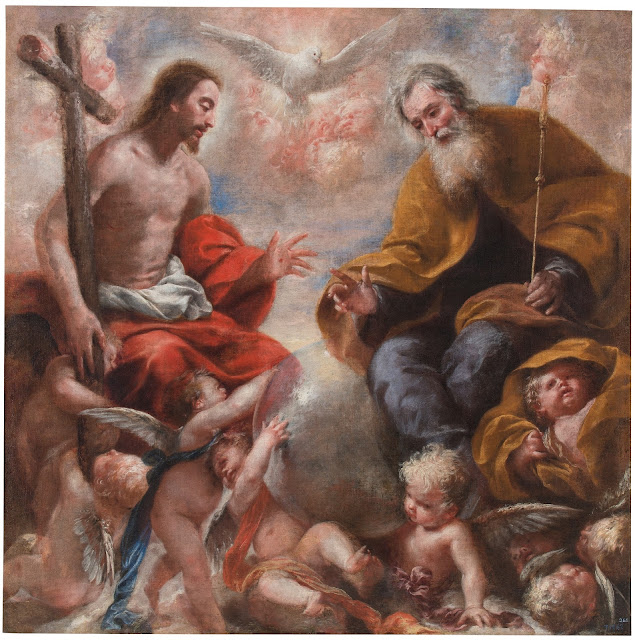At first glance, it might seem as if Jesus is having one of those days in the Gospel today. He seems to be a bit glum about the fact that he has no place to call his own: “Foxes have dens and birds of the sky have nests, but the Son of Man has nowhere to rest his head.” And he seems to be less than sympathetic to the relatively reasonable requests of two prospective disciples, one who wants to bury his dead father and another who wishes to say farewell to his family. If Jesus were feeling sullen, we might be able to guess at the reason. The Gospel passage begins by telling us “that Jesus resolutely determined to journey to Jerusalem.” Until this time, Jesus’s ministry has been confined to his home region of Galilee, but now he’s headed for Jerusalem. He knows perfectly well though what awaits him there: betrayal, arrest, suffering, and death. If we knew those things were in our future, it’s safe to say we might have a bad day as well.
But I don’t think we can explain this Gospel passage as easily as Jesus is just having a rotten day. The Son of God is human like us in all things but sin, and so we can’t rule out the fact that he was feeling a little nervous or downcast about his upcoming Passion in Jerusalem. But more than that, Jesus was always teaching – everything he did and said in some way revealed God and God’s plan for us. Therefore, there must be something else here that he’s trying to teach his disciples.
Walter Rane, Foxes Have Holes and Birds of the Air Have Nests (2014)
If we look at the Gospel more closely, it becomes clear that this story is really about discipleship. Jesus is offering us a spiritual lesson about what it takes to follow him. Holy men and preachers were not uncommon in Jesus’s day, and many developed followings of disciples who sought to learn from them. Jesus, though, is different than other teachers; he wants disciples who are willing to learn from him so completely that they become like him. This is still our calling today. A Christian is not just someone who follows Jesus, as one might admire or learn from a celebrity or public figure. Rather, a Christian is one who seeks to become “Christ-like,” someone who actively tries to adopt the identity of Jesus for oneself. As St. Paul says, “It is not I who live, but Christ who lives in me.”
How then do we allow Christ to live in us? What can prevent us from truly becoming Christ-like? Jesus shows us three obstacles in today’s Gospel. The first is the desire for favor and acclaim. As Christians, we will encounter resistance, even rejection and persecution, because of our faith in Christ. Rather than get offended by this, as James and John do, we should humbly pray for those who do us harm. If Christ himself was nailed to the Cross, then we have to realize our fidelity to him is sometimes going to make our lives harder, not easier.
A second obstacle to being Christ-like is becoming too comfortable in this world. If the Son of Man had nowhere to rest his head, then ultimately we are not going to feel perfectly at peace here either. As citizens of a kingdom not of this world, we can love our lives, we can see the good in this world, but ultimately our hearts should always be focused on the world to come.
A third obstacle to truly becoming like Jesus is being half-hearted about following him. The world offers a lot that can claim our affection and allegiance, but to be a disciple of Christ we must be entirely devoted to him before all else. When Jesus says “let the dead bury their dead,” he may sound as if he’s being unreasonable, but he’s using hyperbole to make a point about how discipleship on our own terms is not going to work. Fortunately, if we seek to follow Christ with an undivided heart, loving him before all else, then it will necessarily lead us to properly treat those other things in life we may feel drawn to: our families, those around us, even ourselves. We learn to love others properly only when we love Christ first.
Friends, our Gospel today is challenging – there’s no two ways about it. The Lord who has come to give us everything asks for everything in return. Only by handing all to him can we truly receive all that he has to give us. Following Jesus means real sacrifice – it means giving up what is easy, familiar, and safe. But in return we share in the very life of Christ, not just as disciples in this world, but hopefully as his saints in the world to come. That is Good News that can lift our spirits no matter how bad our day might be. May this Eucharist nourish us in our journey of faith and make us “fit for the kingdom of God.”





